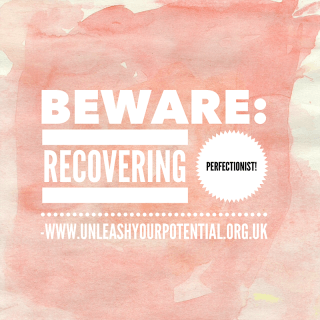Perfectionism “acts as a healthy motivation for reaching ambitious goals”, but can perfectionism be a double edge sword? – we all like high standards, right? Being conscientious and committed is something we value in others … but does perfectionism come at a cost for some people?  In an article called: ‘meet the perfectionists’, the author says that amongst the general population approximately 30% are perfectionists, the percentage of perfectionists among the gifted population is close to 80% – an interesting statistic … (especially if you’ve got children).
In an article called: ‘meet the perfectionists’, the author says that amongst the general population approximately 30% are perfectionists, the percentage of perfectionists among the gifted population is close to 80% – an interesting statistic … (especially if you’ve got children).
What drives perfectionism?
The need for things to be the best they can be – but what drives this? (this is the key and get’s us closer to the real issue) – I think the driver differs from person to person. Some say it’s based on a person’s self-worth being based on outcomes (the things achieved). Some say it’s born out of feedback that people were given as kids about not being good enough or criticised for not getting something quite right. Others suggest it’s about wanting external approval (i.e. from someone else). There are of course other drivers too.
Whatever the driver is, are there any characteristics that are relatively common amongst perfectionists? … often they are their hardest critic (1 % below 100% is not zero as some perfectionists might fear), some may procrastinate (or not act at all) rather than submit a piece of work they are not happy with, some are referred to as black and white in their thinking (which only gives 2 options, rather than multiple options). Their desire for the best sometimes means they run the risk of micro managing others if they not overly self aware and in a leadership role ….
My top 4 tips to help with perfectionism …
I couldn’t get it down to a 3 top tips, so below are 4 🙂
- Be aware of when you’re doing it – (awareness if the very first step) start to notice if you are doing your version of ‘perfectionism’ and pause to question yourself – what are the consequences of this? what are the benefits of carrying on? What are the benefits of changing course? does this really need to be perfect? what will happen if it’s not?
- Value your time – it’s not a free commodity. If you spend it on ‘x’ you can’t spend it on ‘y’ – consider the extra time you’re spending on the task at hand – is it worth it (what is it that you’re not doing by spending more time on this task?)
- Enjoy the journey – rather than thinking I’ll just get this done and then life can start’ – appreciate the journey – the aim should be that the whole process is enjoyable – put your focus into each step, not just the last one to reach the goal
- Given yourself (and others) a break! – … and breath … take the pressure off … smile and remember to laugh … remember our imperfections are what make us human … perfectionists are often quick to prioritise the task in hand over their own health, wellbeing, family, friends etc. Don’t underestimate the power of sleep and down time too – the brain needs down time – step away and allow the mind time to relax and unwind.
What does NLP offer perfectionists?
In short a ton of stuff if being a perfectionist is causing you a problem and you want to change your thinking … some examples are below …
- Limiting Belief – if it’s a belief that’s holding you back – e.g.I’m rubbish at this
- Chaining Anchors can ensure you no longer procrastinate
- Well-Formed Outcomes ensure that you are fired up and highly motivated towards your goal
- Parts Integration is useful to get rid of internal conflicts e.g. part of me thinks I’m good enough’ and part of me doesn’t
- Frame of Reference Filter (one of the unconscious filters of the unconscious mind) – if you currently seek external recognition that you’re doing a good job, we can change it so that you just know you’re doing a good job (and don’t need external external confirmation)
… there are of course other things we have in our toolbox as NLP Practitioners, depending on what’s sitting behind anything that’s causing you a problem, we’ve got something that can help!
____________________________________________________
Laura is passionate about helping people realise their potential, and achieve the results they deserve. She believes, if you change your thinking, you can change your results. If you’d like to find out more about Unleash Your Potential, you can check out our NLP courses and coaching options, and link up with us via our Facebook page, follow us on Twitter or link up with Laura via LinkedIn. You can of course also email us at: [email protected]


